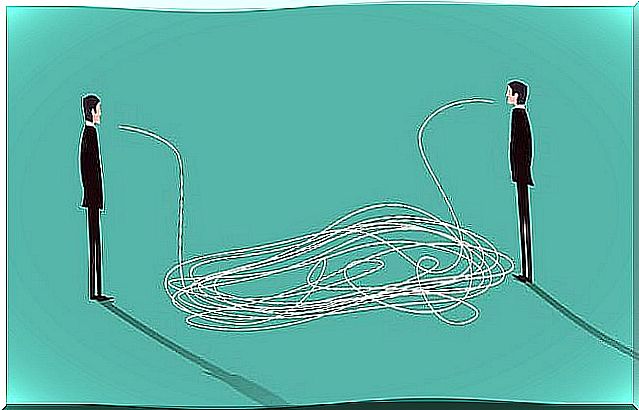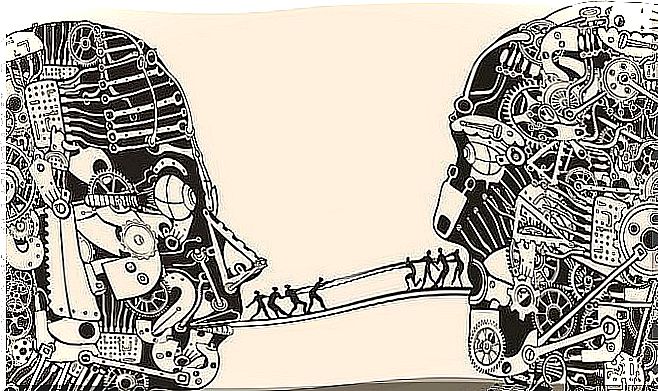Unexplained Agreements Can Have Bad Consequences
It is not wise to communicate halfway. Unfortunately, there are a lot of social and cultural mechanisms that allow us to leave messages in the air, such as implied and unresolved agreements. Society regulates words and the way they are used, sometimes to encourage good manners and sometimes just to simplify daily use.
Often people do not know how to speak because their own thoughts are not clear. In these cases, internal communication fails and causes problems with expression.
Conditions can also affect these unfortunate communication dynamics. People think that there are some to whom they can say certain things and others not. Almost all world powers declare that they have the right to demand silence. And do it. Sometimes they restrict all forms of communication and sometimes only parts of it. But this only leads to error and confusion.
The bad with unresolved agreements
Unexplained agreements are an indirect form of communication where both parties assume that the agreement is clear enough and no further explanation is necessary. For example, say someone tells you there is a knock on the door. You clearly know what that means – “go and open it.” You can read the message between the lines by extracting it from what was actually said.

Even in normal everyday situations, unresolved agreements can end badly and cause misunderstandings. To continue with the example above, “some knock on the door” can mean different things depending on the context.
It can mean “time to change the topic of conversation because someone is here,” or that “the person we are waiting for is here.” Or it may even mean that “beware, no one should be at the door now, but someone is, which means danger.”
Both parties in the conversation must be on a good wavelength in order to be able to interpret exactly what the other person means when they throw out imprecise phrases that they think are clear. Misunderstandings would be nothing but silly stories if they did not also happen in more complicated situations.
In fact, it can be disastrous when it comes to demands and desires. And this happens often. You want someone to do something for you, but you do not tell them. You assume they understand and wonder why they do not realize what you need or want. But people can not always understand where you come from or guess what you are thinking. This is how conflicts arise.
Implied agreements
An agreement is basically a pact between two or more parties. Of course, you can not always make a pact with yourself, but right now we are talking more about social agreements. In agreement, both parties promise to act in a certain way. People come to an agreement when everyone involved believes that a certain action means that a common goal is achieved.

However, some people make the mistake of assuming that there is an agreement without directly checking with the other party involved, so things have in reality never been confirmed. For example , they assume that if they always remember the other person’s birthday, the other person will remember theirs. Or that if they always put the other person in front of themselves, they will receive the same treatment in return.
People can arrive at any agreement with each other, but it’s bad when a person thinks that there is a pact that has been made when it really is not there. As in the example we mentioned in town, a lot happens in terms of reciprocating the service. It can also happen in more complicated situations. For example, “Because I have suffered so much in life, you should not make things difficult for me.” Or “because I think I’m better than you, you can not criticize me.” Both of these can result in bad consequences.
It is best to promote direct and clear communication. Things are always lost in a translation, albeit insignificant, but the risk increases when the message is implied, suppressed or covered up. Therefore, being clear can help you avoid many conflicts.










